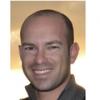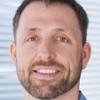Get Smart! Hack Your Brain for Peak Performance
The “quantified self” trend of tracking and tweaking physical performance is all the rage in Silicon Valley, especially among type-A data geeks and weekend-warriors hoping to gain an athletic edge. But the most interesting “body hacks” won’t just make you faster, stronger or leaner… they’ll actually improve your brain.
We’ll explain how to dramatically cut the time it takes to learn a new skill by writing critical information to your brain’s hard drive during sleep. You'll learn how to grow relaxed and calm with the help of a heartbeat- and brainwave-syncing device. And we'll explain how to feed your brain with the optimal nutrition for high-powered cognitive processing.
In this panel, you’ll get an overview of the current state of cognitive enhancement from Bonnier R&D technology researcher Megan Miller. Brain-hacker Dave Asprey will deliver a first-hand look at the fringes of self-experimentation. And you'll find out how emerging software and biofeedback technologies are making it possible to improve sleep, cognition and memory from Stanford neuro-scientist Daniel Wetmore and Lumosity.com cofounder Michael Scanlon.
Presenters

Co-founder of consumer health products company Sheepdog Sciences. Neuroscientist and entrepreneur with 10+ years R & D experience in basic and applied neuroscience research at leading international academic institutions, including Columbia, Cambridge (England), Harvard, Lund (Sweden), and Stanford. Active in entrepreneurial efforts to translate findings from academic labs into drug treatments, medical devices, and consumer products. These efforts include IP portfolio management, market analysis, clinical trial design, non-dilutive fundraising, and patient community outreach.

Dave Asprey is a Silicon Valley investor, computer security expert, and entrepreneur who spent 15 years and $250,000 to hack his own biology. He upgraded his brain by >20 IQ points, lowered his biological age, and lost 100 lbs without using calories or exercise. The Financial Times calls him a "bio-hacker who takes self-quantification to the extreme of self-experimentation." His writing has been published by the New York Times and Fortune, and he's presented at Wharton, Kellogg, the University of California, and Singularity University. He runs a 19 year old anti-aging nonprofit too.


